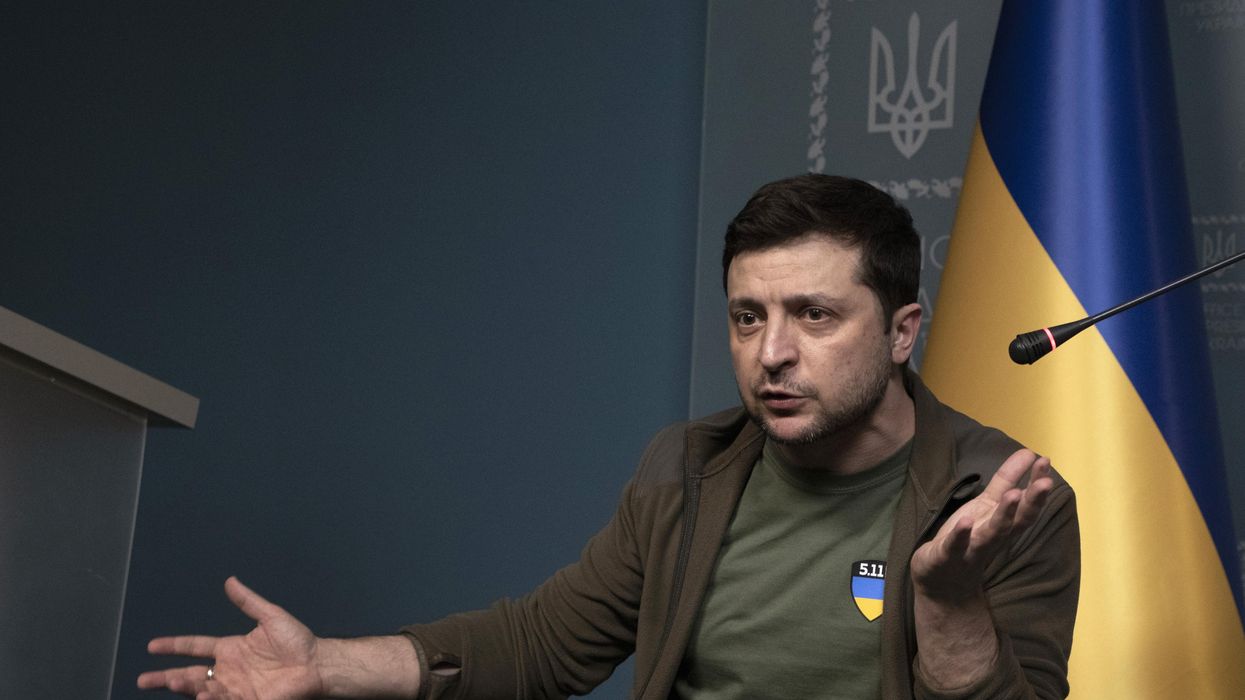Molineaux is co-publisher of The Fulcrum and president/CEO of the Bridge Alliance Education Fund.
I grew up during the Cold War, when we hid under our desks for safety. As a child, I believed that I was doing my part by ducking under my desk and knowing how to respond when the air raid sirens went off. Crouching under a desk seems laughable today. But it gave me a sense of agency that I could survive and eased my anxiety about a world where the adults made decisions that seemed nonsensical.
For me, preparing and having tasks to do was calming. As an adult, this has translated into practical clarity of defining what is needed during moments (or periods) of crisis. Perhaps that is why I’ve spent time reflecting this past couple of weeks on what I would do if I were in Ukraine right now. And I imagine it’s what the people of Ukraine are doing. Or the people in other countries, helping refugees. They are finding shelter, food and supplies. They are banding together to help others to safety. They are taking up arms when necessary. As their everyday lives are at risk, survival is the priority. This is practical clarity.
President Volodymyr Zelensky is meeting his moment with resolve. With love for his countrymen. With truth. He won the presidential election on the wave of The Revolution of Dignity as a counterforce to corruption and oligarchy. His leadership skills were sharpened when he led his people as the former president fled to Russia. He withstood bullying by Donald Trump. He is now in the crucible of transformation, under attack from a desperate man with an old desire for empire building. And Zelensky is asking for our help. Our government is balancing the needs of the United States, Europe and Ukraine. We don’t want to escalate into World War III. It may not be our choice.
The people of the world want to help our brothers and sisters under threat. We’ve opened our hearts, our homes, and our wallets to do our individual tasks. As we witness the attack on Ukraine, we empathize, seeing ourselves under the thumb of an oppressor.
We also see the possibility of ending the modern patriarchy, featuring the authoritarians of our age — Putin, Xi, Kim, Orban, Trump — who want to restore an old world order of strong men. The world has changed despite their desire to control, and has done so without their permission. They will not go quietly into the night.
And so we must face these men and their followers. This style of autocracy has been around for about 5,000 years, beginning with the emergence of tribal communities around the world. They promise security to their supporters. Acolytes of this belief system seek a privileged place in a perverted hierarchy, where denigration, subjugation and oppression are part of everyday life for those not chosen.
Liberal democracy, as defined about 250 years ago, was the enlightened form of governance to mitigate the threat of authoritarians. Our belief in liberal democracy is in the crucible with Zelensky. How will we strengthen our resolve, with love, and avoid becoming the next oppressor?
The world has changed, and we need to meet the populist rhetoric and actions of autocracy to move forward with liberal democracy; where we value the embodiment of democratic processes over all else. When we honor the dignity of others, especially those who have been denigrated and marginalized, that is embodiment. Our shared belief in, and love for, our fellow humans is embodiment. Justice is embodiment. And while effusive and intangible in many ways, when we assume good intentions of our political opponent, that is embodiment.
The war is here. We are in it today. In most of the world, it’s an information war. In Ukraine, it’s a war for survival as an independent nation.
Let’s meet the moment with resolve, and love. The age of authoritarianism is over.
Long live liberal democracy.




















Trump & Hegseth gave Mark Kelly a huge 2028 gift